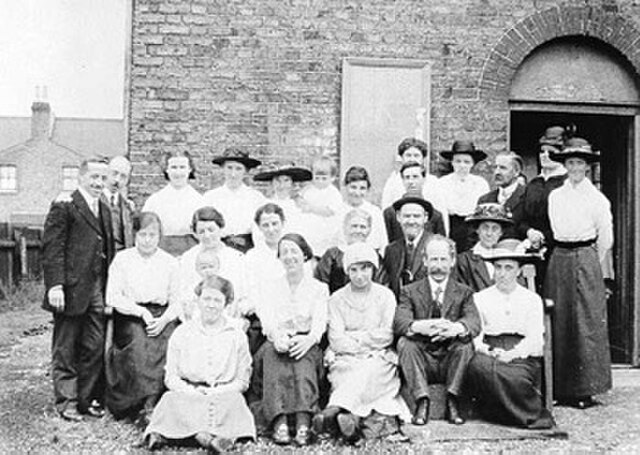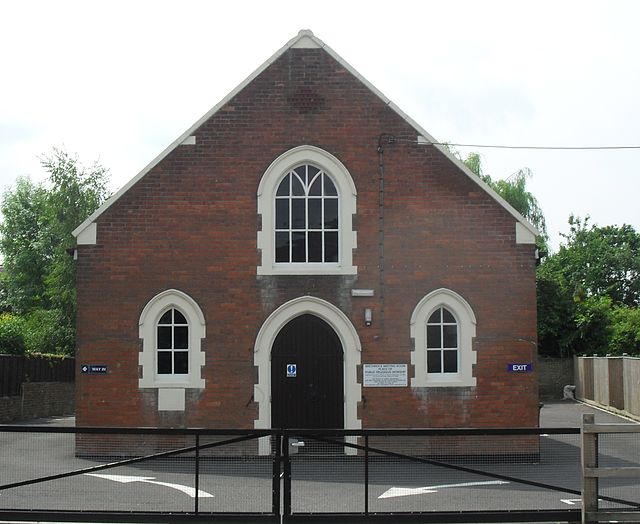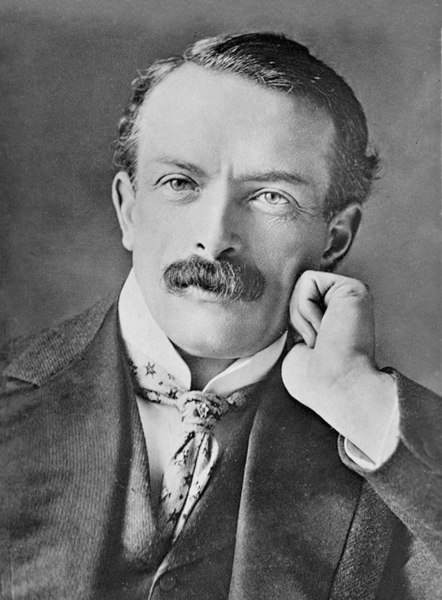The Plymouth Brethren or Assemblies of Brethren are a low church and Nonconformist Christian movement whose history can be traced back to Dublin, Ireland, in the mid to late 1820s, where it originated from Anglicanism. The group emphasizes sola scriptura, the belief that the Bible is the only authority for church doctrine and practice. Plymouth Brethren generally see themselves as a network of like-minded free churches, not as a Christian denomination.
A Plymouth Brethren meeting hall and congregation
A Plymouth Brethren chapel in Broadbridge Heath, West Sussex, England.
Nonconformist (Protestantism)
Nonconformists were Protestant Christians who did not "conform" to the governance and usages of the state church in England, and in Wales until 1914, the Church of England. In Ireland, the comparable term, through to the disestablishment of the Church of Ireland in 1869, was Dissenter: a Protestant, typically a Presbyterian, who refused, or dissented from, the approved Anglican communion.
Title page of a collection of Farewell Sermons preached by Nonconformist ministers ejected from their parishes in 1662.
Bunyan Meeting Free Church, a Nonconformist chapel in Bedford. Dissenter John Bunyan purchased a barn in 1672 for a meeting place. A meeting house replaced it in 1707 and this chapel was built in 1850.
Methodist minister Hugh Price Hughes encouraged Nonconformists to support the Liberal Party.
Liberal Prime Minister David Lloyd George assiduously cultivated Nonconformist support.






